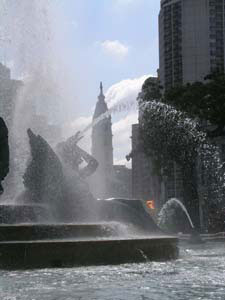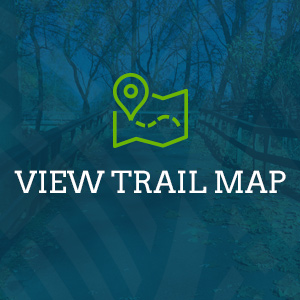Home /
Philadelphia

The Schuylkill River ends its journey winding through the City of Philadelphia, the fifth-largest city in the nation. Settled in 1682 by English gentleman William Penn as the capital of his new colony of Pennsylvania, Philadelphia quickly became the cultural, political, and financial center of the American colonies. When dissatisfaction with British taxation and rule in the American colonies reached a boiling point in the 1770s, delegates from each of the 13 colonies met in the Philadelphia to discuss their course of action. Throughout the spring and summer of 1776 the delegates met secretly in the Pennsylvania State House, now Independence Hall, to draft the Declaration of Independence, and formally sever political and financial ties with England. Eleven years later, after a long and costly war, many of the same men again met in Philadelphia to form a new government to rule the now independent nation. The Constitutional Convention selected Philadelphia to be the first capital of the new nation, and both Presidents Washington and Adams were sworn into office in Philadelphia. The City was also home to the First and Second Banks of the United States, the first Post Office, University, library, and volunteer fire company in the United States among other distinctions.
In 1812 Philadelphia became the first city in North America, and only the second in the world to provide fresh drinking water to its citizens as a government service. The Watering Committee constructed the Fairmount Water Works along the banks of the Schuylkill River beginning in 1815 to pump water out of the river into a large reservoir high atop the “Fair Mount” where the Philadelphia Museum of Art sits today. The Water Works ceased its pumping operations in 1911 and today is an interpretive center operated by the Philadelphia Water Department that is an incredible place to learn about the history of this National Historic and Civil Engineering Landmark, water quality, pollution, public health, and wildlife. In the 1860s, the Fairmount Park Commission was chartered to protect the Schuylkill River as a source of drinking water. The Commission purchased thousands of acres along the river and throughout the City to prevent industrial development. The Fairmount Park system grew to encompass over 9,000 acres, one of the largest urban park systems in the nation.
The Schuylkill River in Philadelphia is a heavily used recreational resource offering numerous activities for recreationalists of all types. Perhaps most famous is the rowing community that traces its origins to the 1830s. The stately late 19th-century boathouses along Kelly Drive are Philadelphia landmarks and are home to the nation’s oldest rowing clubs. Each year the Schuylkill Navy hosts numerous regattas along the Schuylkill, including the Dad Vail, the largest collegiate rowing event in the nation. The Schuylkill River Trail follows begins in Center City and hugs the river as it winds its way through the city on its way northward. East and West Fairmount Park offer numerous loop trails, active recreational opportunities, historic houses, and public art.
Places to Visit in Philadelphia
Academy of Natural Sciences
For 200 years, the Academy has connected people to nature. As Philadelphia’s natural history museum, the Academy educates visitors of all ages. Their scientists study evolution, biodiversity and ecology,...
Learn MoreAmerican Philosophical Society Museum
Charles Wilson Peale, a Philadelphia artist, naturalist, and APS member, founded a popular and influential museum in 1784. It was one of America’s first museums, and the first to...
Learn MoreAmerican Swedish Historical Museum
The American Swedish Historical Museum is a place where Swedes, Swedish-Americans, and people of all nationalities who appreciate Swedish contributions to history, art, architecture, music, science and technology can...
Learn MoreAwbury Arboretum
Located on 55 acres of beautiful scenery located in the Germantown section of Philadelphia, the arboretum’s mission is to preserve and interpret The Francis Cope House, Awbury’s historic house,...
Learn MoreBarnes Foundation
The Barnes Foundation was established by Albert C. Barnes in 1922 to “promote the advancement of education and the appreciation of the fine arts.” It is home to one...
Learn MoreBartram’s Garden
On this site more than 250 years ago, John Bartram, a Quaker farmer, was stopped in his tracks by a daisy while plowing his fields. The plant’s simplicity and...
Learn MoreBelmont Mansion and Underground Railroad Museum
Historic Belmont Mansion provides the setting for the story of the Fairmount Park area of Philadelphia from colonization to the present. The property around Belmont Mansion was initially a...
Learn MoreBicycle Coalition of Greater Philadelphia
Founded in 1972, the Bicycle Coalition of Greater Philadelphia is a 501(c)3 nonprofit organization that serves the Pennsylvania counties of Montgomery, Delaware, Chester, Bucks and Philadelphia as well as...
Learn MoreBoathouse Row
Boathouse row is a National Historic Landmark located along the Schuylkill River. It was listed on the National Register of Historic Places in 1987. The stretch is home to...
Learn MoreCedar Grove Mansion
Cedar Grove is administered in partnership with the City of Philadelphia through the Department of Parks and Recreation, providing visitors with a glimpse into Philadelphia’s rich cultural heritage. Cedar...
Learn MoreCliveden of the National Trust
Cliveden is often called “the Chew House” because seven generations of one family lived within its elegant colonial walls for more than 200 years. Cliveden’s brush with American history...
Learn MoreDestination Schuylkill River
Destination Schuylkill River celebrates life along the River and seeks to connect our communities to the river through planning, programming and projects. What is there to do? How can...
Learn MoreEbenezer Maxwell Mansion
The Ebenezer Maxwell Mansion is the only authentically restored Victorian house museum and garden in Philadelphia. Visitors step back in time to discover a living record of the comforts...
Learn MoreFairmount Park
Fairmount Park was officially founded in 1855 when the Lemon Hill estate was dedicated as a public park and renamed Fairmount Park. Support came from 2,400 citizens who signed...
Learn MoreFairmount Water Works Interpretive Center
The Fairmount Water Works was constructed in 1812 to pump water out of the Schuylkill River to serve the bustling City of Philadelphia. As Philadelphia rose into an industrial...
Learn MoreFort Mifflin on the Delaware
British engineer John Montresor was commissioned to begin construction for a fort at the southern edge of Philadelphia on the Delaware River to protect the city from invasion. Following...
Learn MoreFranklin Institute
On February 5, 1824, Samuel Vaughan Merrick and William H. Keating founded The Franklin Institute of the State of Pennsylvania for the Promotion of the Mechanic Arts. Located in...
Learn MoreGermantown White House (Deshler-Morris House)
The house was built in 1772 by merchant David Deshler, and a mere five years later it was in the middle of the raging Battle of Germantown. British General...
Learn MoreGrumblethorpe
Built in 1744 as a country summer home by wine importer John Wister, Grumblethorpe was originally known as “John Wister’s Big House” because it had multiple stories. Built from...
Learn MoreHermitage Mansion
The Hermitage Mansion is located in the Wissahickon area of Fairmount Park. The history of the Mansion can be traced back 300 years to a small group of Rosicrucians,...
Learn MoreHistoric RittenhouseTown
Among the many picturesque acres of Philadelphia’s Fairmount Park, there is a rare and unique treasure known as Historic RittenhouseTown. It is the site of America’s first paper mill,...
Learn MoreIndependence National Historical Park
Independence National Historical Park, located in Old City Philadelphia is among the most historically significant places in the United States and the World. The Park is home to the...
Learn MoreJapanese House and Garden
This shoin-zukuri (desk-centered) house, built in 16th century style, is located on the grounds of the Horticultural Center in the West Philadelphia section of Fairmount Park. The ground on...
Learn MoreJohn Heinz National Wildlife Refuge
The John Heinz National Wildlife Refuge at Tinicum is located near the confluence of the Schuylkill and Delaware Rivers about 1 mile from the Philadelphia International Airport. Over the...
Learn MoreLaurel Hill Cemetery
Established in 1836, Laurel Hill is one of Philadelphia’s premier historic landmarks and one of the only cemeteries in the United States to be honored as a National Historic...
Learn MoreLaurel Hill Mansion
Discover the surprising and true story of Rebecca Rawle, a wealthy widow, who built this small country house in the Georgian style around 1764. After Rawle’s second marriage to...
Learn MoreManayunk Towpath
While cycling, Manayunk can be a destination or an excellent resting point on the Philadelphia-to-Valley Forge section of the Schuylkill River Trail. A portion of the trail incorporates the...
Learn MoreMorris Arboretum
The Morris Arboretum of the University of Pennsylvania is a historic public garden and educational institution. It promotes an understanding of the relationship between plants, people and place through...
Learn MoreMutter Museum
In 1858, Thomas Dent Mütter, retired Professor of Surgery at Jefferson Medical College, presented his personal collection of unique anatomic and pathological materials to The College of Physicians of...
Learn MoreNational Constitution Center
The exhibit experience at The Constitution Center will take you through important events in our nation’s history and through unique, interactive exhibits, show you how the United States Constitution...
Learn MoreNational Museum of American Jewish History
The Museum is located on the sacred ground of Independence Mall in the heart of the most historic square mile in America. Covering 25,000 square feet and three and...
Learn MorePhiladelphia Canoe Club
Located at the confluence of the Wissahickon Creek and Schuylkill River, the Philadelphia Canoe Club’s headquarter is a former mill that was built around 1686-1689. The Philadelphia Canoe Club...
Learn MorePhiladelphia History Museum at Atwater Kent
The new Philadelphia History Museum showcases an array of historical objects, art, and artifacts that tell the story of Philadelphia, from its founding in 1680 to present day. The...
Learn MorePhiladelphia Museum of Art
Rising majestically at the end of the Benjamin Franklin Parkway, the Philadelphia Museum of Art stands as one of the great art institutions of the world. In the 125+...
Learn MorePhiladelphia Zoo
he Philadelphia Zoo’s 42-acre Victorian garden is home to more than 1,300 animals, many of them rare and endangered. The Zoo, fulfilling its mission of conservation, science, education and...
Learn MorePlease Touch Museum
The Please Touch Museum is the children’s museum of Philadelphia. Please Touch is designed for families with young children and since 1976, has dedicated itself to enriching the lives...
Learn MorePowel House
Visitors can stroll through the room where the Washingtons danced on their wedding anniversary, ponder the sumptuous meals served in the Powels’ dining room, sit in the parlor where...
Learn MoreRosenbach Museum & Library
In the beautifully restored 1865 townhouse, experience an age where great collectors lived among their treasures. The Rosenbach is a major cultural destination—a research center that is home to...
Learn MoreRyerss Museum and Library
Like most things Victorian, the Ryerss Museum and Library is very eclectic. From opium pipes to stuffed alligators, the Ryerss collection gives visitors insight into a family who traveled...
Learn MoreSchuylkill Banks
It all starts on Schuylkill Banks, an eight mile stretch of distinctly urban riverfront in Philadelphia. As Philadelphia’s riverfront destination, Schuylkill Banks is home to greenways, parks, docks, the...
Learn MoreSchuylkill Center for Environmental Education
The Schuylkill Center is the largest tract of privately owned land in the City of Philadelphia. Located on the border of Philadelphia and Montgomery County, SCEE is a wonderful...
Learn MoreStenton
An historic house museum administered by The National Society of the Colonial Dames of America in the Commonwealth of Pennsylvania, Stenton is known as one of the earliest, best-preserved...
Learn MoreStrawberry Mansion
Formerly known as “Summerville,” the center section of Strawberry Mansion was built in the Federal style around 1790 by renowned lawyer Judge William Lewis, who drafted the first law...
Learn MoreSweetbriar Mansion
Get a glimpse of the cosmopolitan life at Sweetbriar, the year-round home of Samuel Breck, who was intimately involved in the development of the city and was active in...
Learn MoreThe Woodlands
The Woodlands features one of the most architecturally significant mansions in America, its Carriage House, and an active Rural Cemetery which was incorporated in 1840. The pathways and avenues...
Learn MoreUniversity of Pennsylvania Museum of Archaeology and Anthropology
The University of Pennsylvania Museum of Archaeology and Anthropology, through its research, collections, exhibitions, and educational programming, advances understanding of the world’s cultural heritage. Founded in 1887, Penn Museum...
Learn MoreWashington-Rochambeau Revolutionary Route (W3R)
The Washington-Rochambeau Revolutionary Route traces the historic path that French troops, under the command of General Jean-Baptiste de Rochambeau, took in 1781 from Newport, Rhode Island, to White Plains,...
Learn MoreWissahickon Valley Park
One of the most heavily industrialized creeks in America, the Wissahickon Creek and its impressive valley were home to dozens of mills and factories throughout the 18th and 19th...
Learn MoreWoodford
Woodford is a fine example of late Georgian architecture and one of the earliest surviving in the Philadelphia area. It contains all the elements associated with this style such...
Learn MoreWoodmere Art Museum
Housed in a gracious 19th century stone Victorian mansion on six acres in the Chestnut Hill section of Philadelphia, Woodmere first opened its doors to the public in 1940....
Learn MoreWyck
Wyck was home to nine generations of the same Quaker family, the Wistars and the Haines, who owned and lived on this “farm” in Germantown. Today the wonderful colonial...
Learn More








